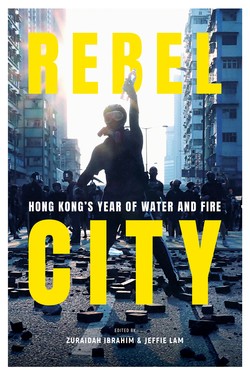Читать книгу Rebel City - South China Morning Post Team - Страница 31
На сайте Литреса книга снята с продажи.
Lam stews
ОглавлениеOn March 19, Lam hinted that the government’s stance was softening. A week later, she agreed to exempt nine economic crimes included in the original proposal. Her cabinet then endorsed a revised bill that would allow extraditions only for offenses punishable by at least three years’ imprisonment, rather than one as originally proposed.
The revised bill also excluded white-collar crimes related to taxes, securities and futures trading, intellectual property, company offenses and the unlawful use of computers, but retained those related to bribery, fraud and money laundering. Thirty-seven crimes remained on the list, down from the original 46.
Announcing the changes, Lam maintained that the death of Poon in Taiwan had been her government’s only motivation in wanting the law changed. “All this huge amount of work done by my colleagues is driven only by empathy and sympathy,” she said.
Was that enough to cut the mustard with critics? Well, the answer depended on whom you asked.
The business sector generally welcomed the changes. Others remained unconvinced if not mistrustful, criticizing Lam for heeding the concerns of a small, privileged sector of the community while refusing to address broader issues, such as the lack of a guarantee of fair trials on the mainland.
Even Cross, the former director of public prosecutions who supported the bill in its original form, was concerned about the amendment. “It is clearly illogical that some people suspected of serious crime should be liable to surrender if apprehended in Hong Kong, whereas others can enjoy safe haven,” he said. “After all, criminal justice is all about equality of treatment.”
For Lam, there were bigger problems ahead. Opposition to the bill was snowballing, leading to protests that would continue for the rest of 2019.
Even after she amended the bill again in May, then suspended it in June, declared it dead in July and withdrawn in September, and formally removed it from the legislative agenda in October, the protests continued.
Coincidentally, later that month, Chan – the convicted money launderer and murder suspect whose case the bill had been meant address – completed his jail sentence and walked out a free man. As he left the prison gates, Chan apologized to the Hong Kong public for all the fuss he had caused and vowed to turn himself in voluntarily to the Taiwanese authorities.
But still the protests did not skip a beat. After all, things were no longer about Chan, Poon and her grieving parents. Ironically, they were no longer about the killed bill either.
